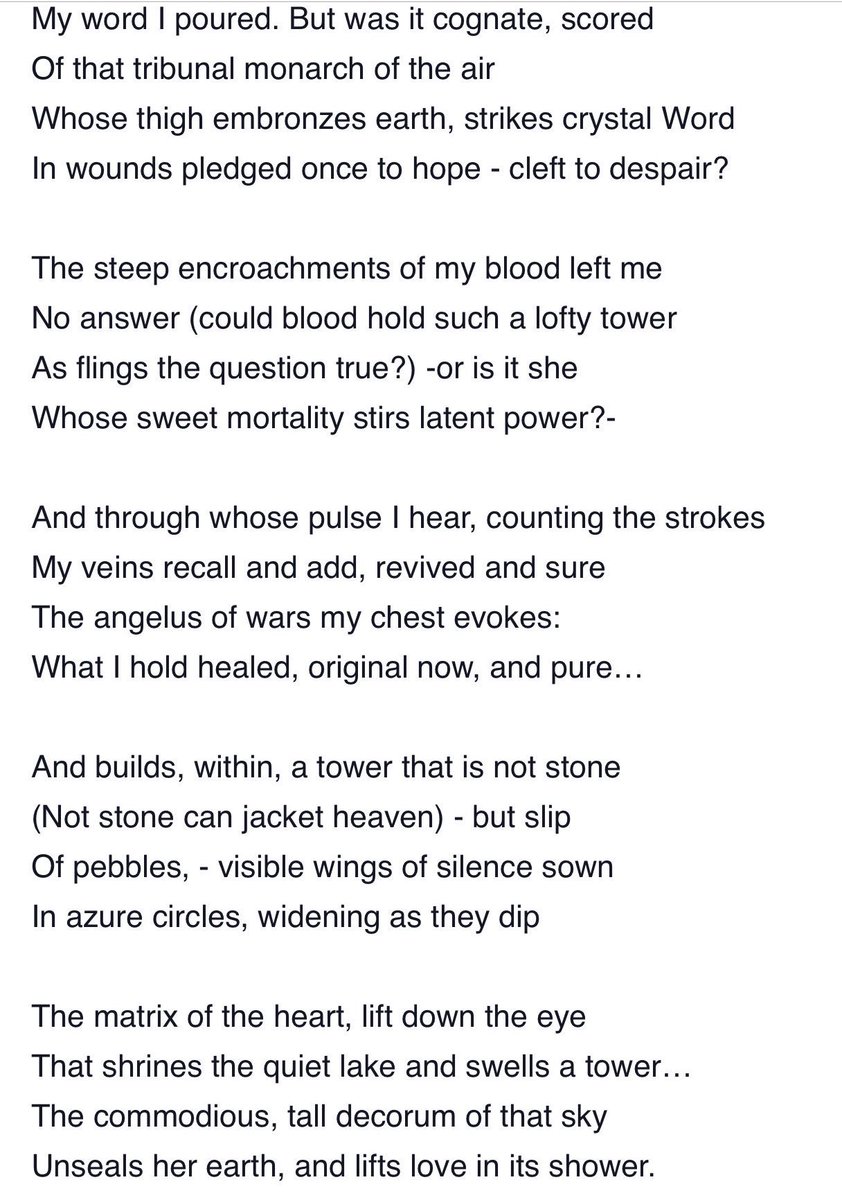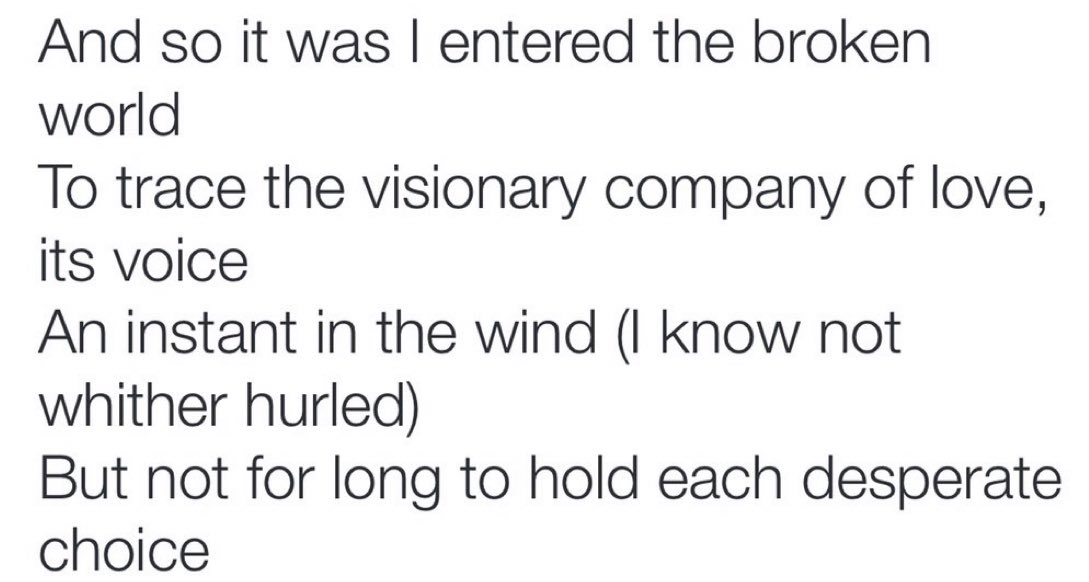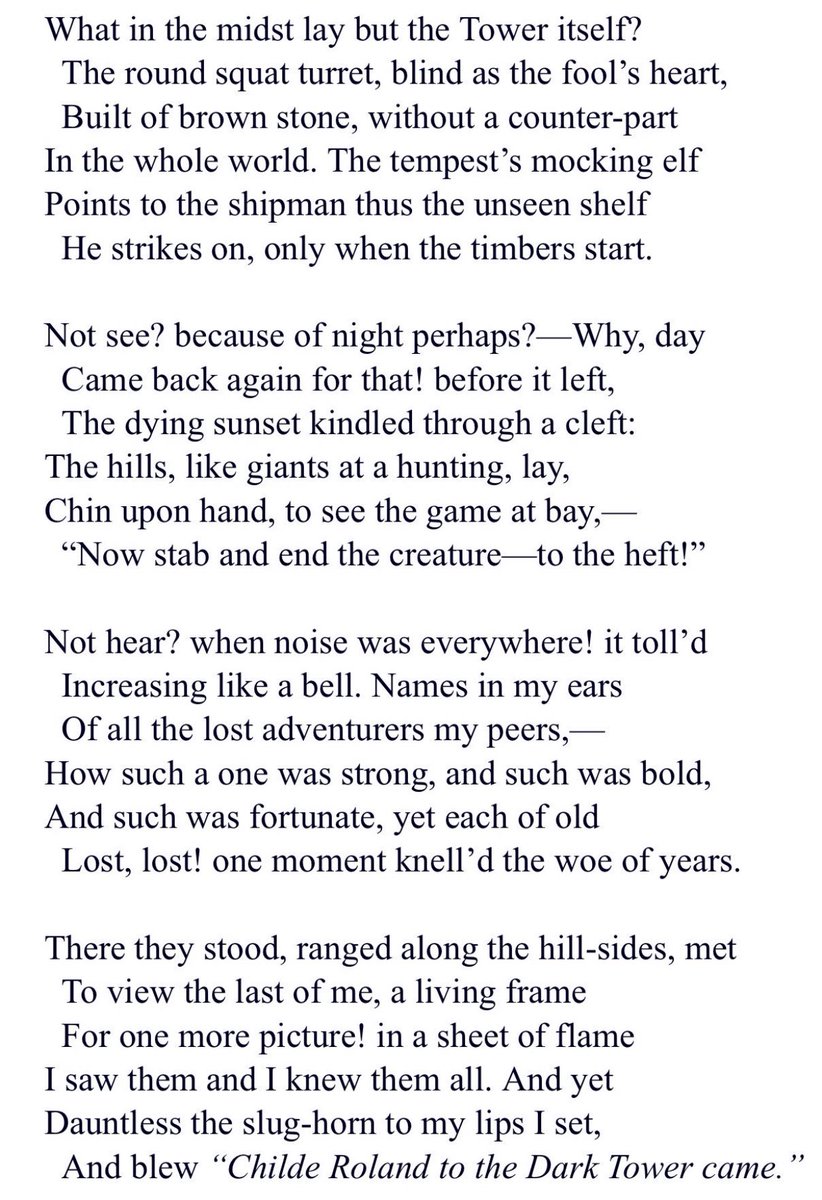Is Satan in fact the Sun? And other questions Hart Crane forces on the heart
some hysterical esoterics on that most in-volved of those cochlear mages (the poets), Harold Hart Crane, jumping off from his death poem, “The Broken Tower”:::
his ‘sacred word’ pierced by the High Prosecutor that is the analytical mind (cf Blake’s Urizen) as the scorching sun
[‘scored’ = pierced; ranked/evaluated (mene mene tekel, upharsin!)]
this is clearly an Icarian trope, but presumably fused to a Christological one as well, the Word with wounds pledged to hope and ‘scored’ by the Apollonian (solar! befitting thr Icarus trope)/linear/Urizenic spear of Longinus
and hey, that line break after "its voice" renders that phrase appositional of Crane himself as well!
the wind here (like the sun before) slivering the desperate poet/poetry into a death that is dis-integration (ie, a loss of integrity): a loss of organic wholeness, of literal *coherence*, which is *identity*
Crane lamenting incoherence would seem inevitable given his notoriously difficult verse, but its severance, ie HIS severance (since he IS "its voice") by means of his severance from ITS **VISCERAL** MEANING, is effected by the ana-lytical (ie "chopping up")...
"scoring" (rating quantitatively but also literally piercing like the hands & feet of Christ and bearing the mark of the beast, as it were) of The Accuser Who Is The God of This World.
It was "cognate," Hart declares: merely a cousin of The Word was "my word," and he digs here to the cogn- root of cognate: was it "known/understood" by its "scoring" and mere *proximity* to the Word?
being altered by tropes of *external* pattern & coherence (even "adherence" more than "coherence") to clear categories & knowledge & poetic tradition, this coherence or adherence to *form* mangling the internal integrity and coherence to the *function*, to the Form beyond poems?
The "desperate choice" is the chosen voice him/herself who withers in the wind (hurled who knows whither!) before the visionary company of love choses another, & also the sort of valence collapse of interpretation necessary to comprehend the deep gem of life & verse like Crane& #39;s
for the reader it is a choice of readings; for the poet a choice of poems. The Lucretian renewal to wholeness necessitates those collapses be temporary, whether of this single reading, this poem, or even this single poet.
Not The Word, mere words, they must be supplanted
(cf Stevens “This is nothing until in a single man contained,
Nothing until this named thing nameless is
And is destroyed”)
to adumbrate The Total Thing by a temporal succession of partial things that together a Whole comprises.
(cf Stevens “This is nothing until in a single man contained,
Nothing until this named thing nameless is
And is destroyed”)
to adumbrate The Total Thing by a temporal succession of partial things that together a Whole comprises.
So the poem/poet becomes Incomplete (thus Mortal) by "entering the broken world," entangling itself w/ "cognates" in Satan& #39;s categories & the dis-integrating quantitative/analytical/comparative, as opposed to qualitative/essential/experiential, losing its tether to The Word
‘The Word’ as integrity of the poem or poet as complete Wor(l)d, its motive & emotive essence, its felt rather than "cogn-ized" truth, which comes not from the edenic apple or Orpheus looking back at Eurydice with his eyes failing to lead her out...
but with his myth-MAKING, his truthmaking voice & “vision" that synthesizes rather than analyzes. This 1st disintegration (from self & Word) necessitates the 2nd (the temporal succession of poems/poets stuttered out by Death), which remediates the 1st in a trope of Christology:
death conquering death, the wisdom of the world in construing the poem being heavenly folly & a divine incoherence (really merely in-ADHERENCE, as it were) being true wisdom, a timeless orb untethered. Time destroys the ruined form of what our souls adulterated.
Good.
Good.
Browning’s “Childe Roland to the Dark Tower Came” as always felt like a vital forerunner to Crane’s “Broken Tower” by the way (only posted the end but here)
The transitive inversion making the poet himself the tower - “broken”, but imagistically subsuming the high unconquerable sinister influence deviling Browning’s Roland - is an incredible Cranian trope of power in passivity, the godly body of Attis divided to fecundate a future
That this poem almost immediately preceded Hart’s maritime self-castration (insofar as suicide into the sea is, a fortiori, self-castration into the sea, especially when undertaken to proscribe the act of love) cements this compound motion as the love of the dying god
who knew that only his kenotic, freely chosen impotence could birth pure power.

 Read on Twitter
Read on Twitter






